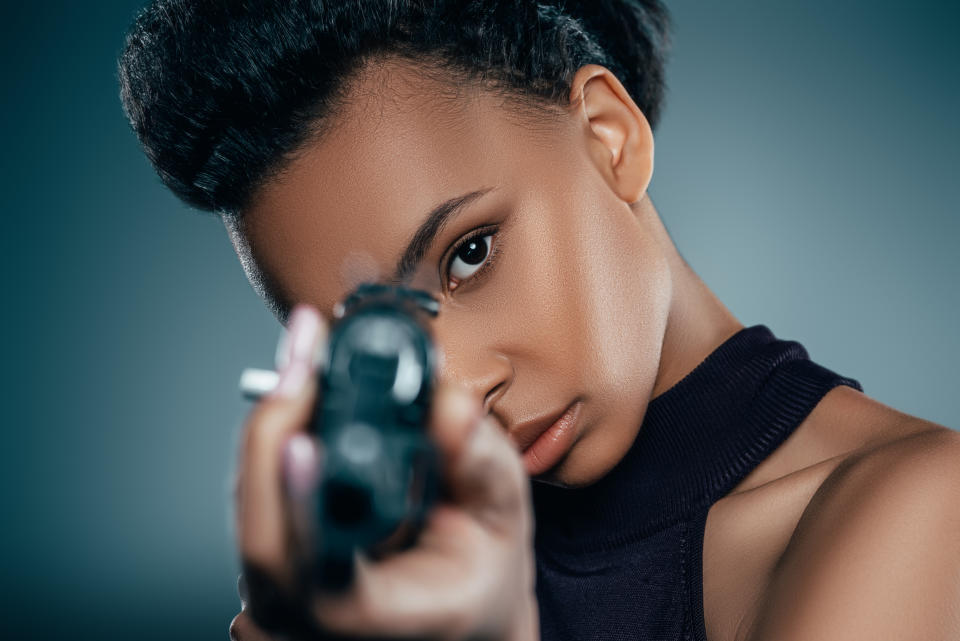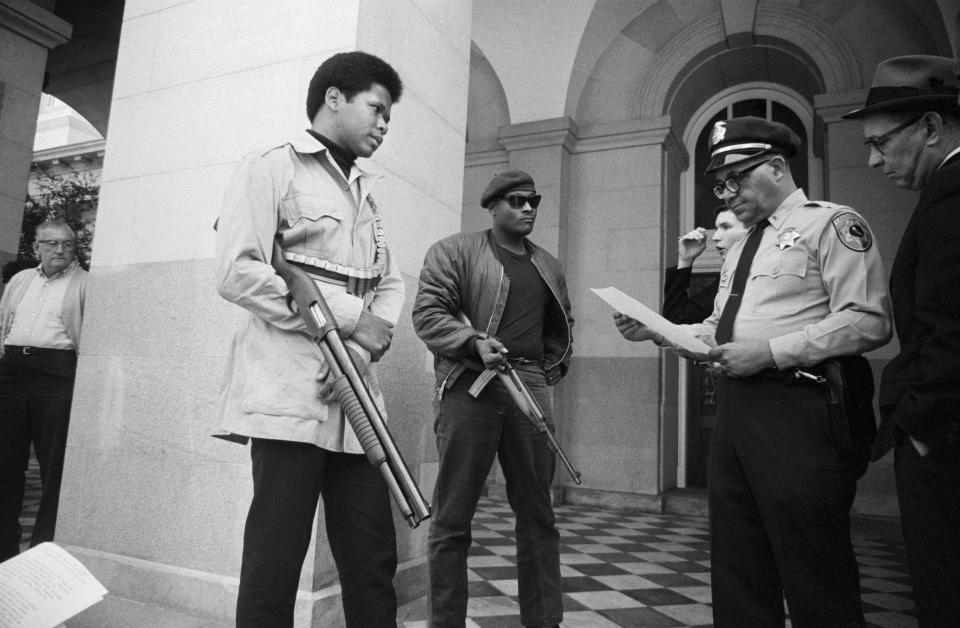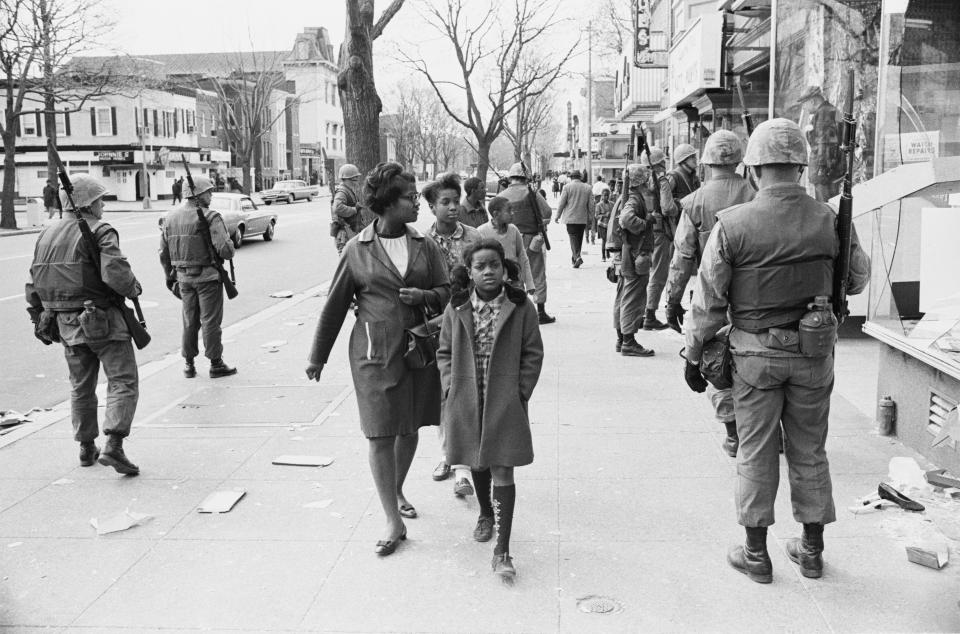Gun sales spike among African-Americans: 'Our ancestors died for us to vote, they also died for us to be able to carry guns'
When Americans panic, they buy guns — lots of them. During the first six months of 2020, amid a global coronavirus pandemic, gun retailers have reported a record 10.3 million firearm transactions, according to a new survey by the National Shooting Sports Foundation. Overall, gun sales in the U.S. have increased by 95 percent while ammunition sales have increased 139 percent compared to the same period last year.
And while various demographic groups are buying guns in 2020, African-Americans account for the highest increase in gun purchases of any group.
“The highest overall firearm sales increase comes from Black men and women, who show a 58.2% increase in purchases during the first six months of 2020 versus the same period last year,” Jim Curcuruto, NSSF director of research and market development, wrote in his report. “Bottom line is that there has never been a sustained surge in firearm sales quite like what we are in the midst of.”

In many states, estimated gun sales doubled in March compared with February. In Utah, they nearly tripled. And in Michigan, a coronavirus hot spot, sales more than tripled.
Yet it’s not the first time gun sales have surged following an event with national implications. In 2012, more than 3 million were purchased in the months after the Sandy Hook Elementary School massacre, in which a gunman killed 26 people, including 20 children, in Newtown, Conn. After this tragedy, Americans feared stricter gun laws so they bought more guns. In the eight years under President Obama, the gun industry grew 158 percent, according to the NSSF, over fears of impending gun control.
While much of the spike in sales early on can be attributed to uncertainty surrounding business shutdowns and initial stay-at-home orders because of COVID-19 precautions, more recent sales may be due to an uneasiness around Black Lives Matter rallies and increased calls to defund police departments.
Michael Cargill, a Black man and owner of Central Texas Gun Works in Austin, Texas, says that amid all the anxiety over the pandemic and rallies, people are buying guns to take personal responsibility for their safety. “People were concerned with people breaking into their home or breaking into their vehicle or attacking them while they’re in their vehicles [after COVID-19],” he said in a video interview with Yahoo News. “So people wanted to take their own protection into their own hands.”

In the past few months, Cargill says he’s seen triple the amount of people coming into his store wanting to purchase firearms, and he’s noticed a surge in Black customers in particular. Cargill believes Black people are buying more guns because they are getting more educated on the history of gun control. “They’re understanding that gun control first started in the 1800s … so people are realizing that every time there's a gun law that’s targeting a certain group of people, it’s usually the African-American group,” he said. “So they’re saying, with everything going on, we’ve got to make sure that we’re legal with this firearm. We’re going to make sure we know what the law is, we want to make sure we know where we can take it, where we can’t take it.”
History shows that gun control laws have always been unfavorable to Black Americans. Even before America was a country, Black people were banned from owning guns. “The first gun control law in the territory that is now the United States was passed in Virginia in 1640,” journalist Daniel Rivero noted in a 2016 Splinter article. “It explicitly banned black people from owning guns, even if they were not slaves.”
More than 200 years later, in 1857, the prospect of armed Black people became a crucial factor in the Dred Scott case. As Scott attempted to become an American citizen with all its inalienable rights that include owning a gun, the court ruled that "a negro, whose ancestors were imported into this country, and sold as slaves," were not "intended to be included in the general words used in [the Constitution].”
Following the Civil War, when Black people attempted to arm themselves against white supremacists, Southern state governments passed so-called black codes barring them from owning guns.

Throughout the 1960s, the Black Panthers chose to open carry in California as a sign to police that they would no longer endure racial attacks. In 1967, 30 Black Panthers protested on the steps of the California state house armed with shotguns and pistols. They announced that “the time has come for Black people to arm themselves.” The move frightened politicians, and it wasn’t long before then-Gov. Ronald Reagan signed a state ban on open carry into law, called the Mulford Act.
Whitney Davis of Houston admits that learning more about Black history is the reason why she recently purchased two guns for herself. “I realize in this country a long time ago, Black people weren't even allowed to own guns,” she said.
Davis’s dad grew up on a ranch in rural Texas, where over his lifetime he accrued a lot of guns, but it wasn’t until Davis learned more about her Black ancestors that she felt motivated to buy guns of her own. “So just like people promote that our ancestors died for us to vote, they also died for us to be able to carry guns as well,” she said. “So I wanted to fulfill what my ancestors weren’t able to do in the past.”
Davis endorses a common rationale voiced by proponents of easing restrictions on guns. “If everybody knows that everybody has a gun then maybe you’re a lot of less likely to attack people or hurt people,” she said. “If everyone knows, if you have a gun, I got one too, it’s an equal playing field.”
Despite the increase in Black gun ownership and general knowledge about Black history, many Black people have still lost their lives over owning a gun. “In 2016, legal gun owner Philando Castile was shot after informing a Minnesota police officer that he was armed,” HuffPost’s Julia Craven wrote. “Two years prior, Tamir Rice was killed by Cleveland police while holding a toy gun. John Crawford suffered the same fate in a Beavercreek, Ohio, Walmart.”
On July 25, Garrett Foster, a white man, attended a Black Lives Matter protest in Austin, Texas, carrying a semi-automatic rifle. After a confrontation with a motorist, Foster was shot dead on July 25.
The move for African-Americans to own guns appears to be a break from the progressive movement in American politics, which people of color generally align with.

The Congressional Black Caucus has pushed for stricter gun control measures in the past, most recently following two mass shootings in El Paso, Texas, and Dayton, Ohio. “We have worked vigorously with House Democrats to pass universal background check legislation,” Rep. Karen Bass, D-Calif., chair of the Congressional Black Caucus, said in the aftermath of those two tragedies. The lawmaker said the CBC has also backed a bill to ban a loophole in gun control law introduced by Majority Whip Jim Clyburn, D-S.C. Rep. Bass did not return Yahoo News’ request for comment.
But Republicans have been consistently resistant to increased gun control measures. In response to the CBC’s push, Senate Majority Leader Mitch McConnell said Congress was “in a holding pattern” on gun control.
“I still await guidance from the White House as to what [Trump] thinks he’s comfortable signing,” the Kentucky Republican said last September. “If and when that happens, then we’ll have a real possibility of actually changing the law and hopefully making some progress.”
Maj Toure, founder of Black Guns Matter, a nonprofit that educates people in urban communities on their Second Amendment rights through firearms training and education, believes the more Black people who have guns, the better race relations will be in America. “If everyone has the right mindset with a gun, that solves race issues,” Toure told Yahoo News in a phone interview. “An armed society is a polite society.”

Toure advocates for Black gun ownership as a tool for self-defense and pushes gun safety. But he acknowledges the fact that fear makes people buy things. Toure welcomes this.
“I love that so many Black people are buying guns,” he said. “If you’re racist ... and you think that one group is inferior to another, then you should be afraid.”
_____
Read more from Yahoo News:
Case of teen jailed for missing online classwork shows how schools and courts oppress Black students
Georgia murder case tests whether a Black man can stand his ground against whites
Video shows Black man pinned to tree in what he calls 'attempted lynching' at Indiana lake
'Sleeping while Black': Family seeks justice for Breonna Taylor, killed in her bedroom by police



